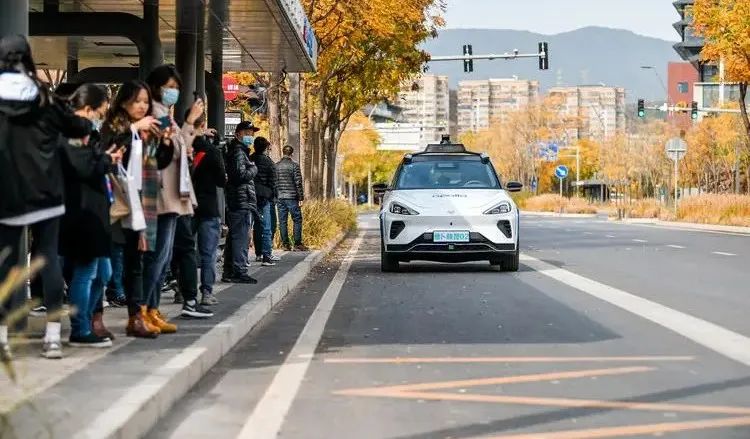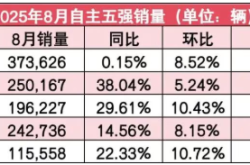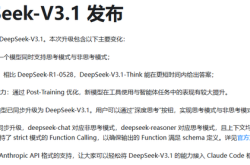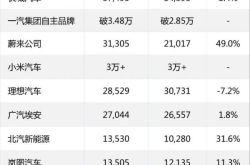Baidu Takes on Didi, Unleashing the Autonomous Taxi War
![]() 07/12 2024
07/12 2024
![]() 643
643
The era of autonomous taxis is truly upon us!
Source | Xinpinlue Finance Author | Wu Wenwu
The sudden popularity of Luobo Kuaipao autonomous taxis in Wuhan is not just about Baidu going head-to-head with Didi, but also signals the start of an autonomous taxi war without smoke or guns.
01
Luobo Kuaipao Takes Wuhan by Storm
No one expected that the first city to deploy and operate autonomous taxis on a large scale would not be Beijing, Shanghai, Guangzhou, or Shenzhen, but Wuhan.
Xinpinlue Finance has noticed that recently, Wuhan's taxi and ride-hailing markets have been abuzz with heated competition and trending topics. Since May 15th of this year, Baidu's sixth-generation Luobo Kuaipao autonomous vehicles have been put into use in Wuhan, quickly igniting a craze for autonomous taxi rides, with related chain reactions following suit.

A Wuhan resident shared a detailed video documenting their first experience riding Luobo Kuaipao on July 3rd. In the video, Luobo Kuaipao courteously yielded to an electric bike passing from the right before slowly stopping at the pickup point. Following the operational instructions, the resident scanned the QR code on the rear door, entered the last four digits of their phone number, and unlocked the door. The process was simple, convenient, and provided a pleasant experience. Naturally, netizens are most concerned about safety and pricing. The aforementioned resident found Luobo Kuaipao to be very affordable, as they usually pay 30 yuan for a taxi ride to work, but Luobo Kuaipao charged only 19 yuan. Some netizens compared prices, finding that for a 10-kilometer journey, Luobo Kuaipao costs approximately 4 to 16 yuan, far below the 18 to 30 yuan charged by ordinary ride-hailing services. Luobo Kuaipao's prices are indeed attractive.
Luobo Kuaipao autonomous taxis have not just appeared in Wuhan recently. As early as September 2022, after Wuhan and Chongqing took the lead in announcing full-autonomy commercial pilot policies, Baidu's autonomous vehicles entered Wuhan, but they were only undergoing road tests without large-scale commercialization. According to Wuhan Economic TV reports, during the Spring Festival, Luobo Kuaipao autonomous taxis appeared at Wuhan Tianhe Airport, quickly connecting passengers traveling to and from the city. Many passengers had already experienced them. The recent surge in popularity of Luobo Kuaipao on trending topics is due to a public letter from Wuhan taxi companies claiming that Wuhan's taxi industry is on the brink of collapse, and they jointly resist fixed pricing and autonomous vehicles. Some market observers believe that Luobo Kuaipao's 24/7 autonomous taxi operations in Wuhan significantly reduce labor costs and avoid safety hazards such as fatigued driving, potentially altering the existing taxi and ride-hailing market landscape and impacting the livelihoods of taxi and ride-hailing drivers. Rumors circulated online that Luobo Kuaipao had deployed 1,000 vehicles in Wuhan, but the relevant official from the Wuhan Transport Bureau stated that the city's taxi industry is stable, and there are many rumors circulating online. Luobo Kuaipao has deployed over 400 autonomous vehicles in Wuhan. The launch of Luobo Kuaipao autonomous taxis in Wuhan marks the first shot in the autonomous taxi war, reminiscent of the impact of Didi and Uber on city taxis when they first emerged.
02
Baidu Takes on Didi
As Luobo Kuaipao's autonomous taxis become popular in Wuhan, the company behind it, Baidu, has been thrust into the spotlight. As early as 2013, Baidu began laying out its autonomous driving strategy, establishing the Intelligent Driving Group, and announcing the "Apollo Project" at the Shanghai Auto Show that year. In 2017, Baidu launched the Apollo autonomous driving open platform. Amidst the current wave of new energy vehicle development, with many new carmakers and traditional automakers promoting their advanced intelligent driving capabilities, many people may not think of Baidu or even "ignore" it. According to public media reports, Luobo Kuaipao's cumulative order volume has exceeded 6 million orders. By 2024, Luobo Kuaipao's autonomous driving services have been opened in 10 cities, including Beijing, Shanghai, Guangzhou, Shenzhen, and Wuhan, with commercial operations already underway in Wuhan, Beijing, Chongqing, Yangquan, and other cities. Luobo Kuaipao primarily impacts and disrupts local traditional taxi markets, which have long faced competition and pressure from ride-hailing services. Now, with the arrival of autonomous taxis, taxi drivers face yet another new rival. Traditional taxi markets have local characteristics in each city and cannot be fully replaced, but relevant departments have their own plans and pace to manage this transition.
However, in the view of Xinpinlue Finance, as Luobo Kuaipao accelerates commercialization in existing cities and enters more in the future, it will directly impact and disrupt local ride-hailing markets, especially the express ride segment, ultimately affecting Didi. Didi has also acted in the autonomous driving space but was three years late compared to Baidu. In 2016, Didi began setting up its autonomous driving team, which was upgraded to a company in August 2019. Didi has invested heavily in autonomous driving, raising significant funds. From its spin-off in 2019 to October 2023, Didi's autonomous driving division raised over $1.2 billion in funding, with a valuation once exceeding Pony.ai's. In October 2023, Didi's autonomous driving division announced that GAC Capital and the Guangzhou Development District Investment Group would jointly establish a special fund to invest up to $149 million in Didi's autonomous driving efforts.
According to 2023 industry data, Didi holds a dominant 75.7% market share in the ride-hailing market. Market forecasts suggest that autonomous driving services could perfectly complement Didi's existing business. Didi has partnered with GAC to advance the mass production of autonomous vehicles. On April 7th this year, Didi's autonomous driving company and GAC Aion jointly established AnDi Technology with a registered capital of 420 million yuan. The joint venture plans to launch its first commercial Robotaxi in 2025. At this stage, compared to Baidu, Didi's autonomous driving business commercialization is clearly lagging behind. With autonomous taxis offering more affordable prices and lower operating costs, as deployment increases in the future, they are bound to significantly impact local ride-hailing markets, ultimately affecting Didi. Didi never imagined that its initial competitors would be other ride-hailing players, but in the autonomous driving era, its first formidable rival would be Baidu.
03
The Autonomous Taxi War Begins Baidu's Luobo Kuaipao has ignited an autonomous taxi war without smoke or guns in Wuhan, but it also directly conveys a significant message: the autonomous taxi war has begun. Luobo Kuaipao's market performance data in Wuhan is not only impressive but also aggressive, with a promising future. Data shows that Luobo Kuaipao's fully autonomous order volume in Wuhan has experienced explosive growth recently, with a single-day, single-vehicle peak exceeding 20 orders, and the proportion of fully autonomous orders has exceeded 55%, rising further to 70% in April, with projections of reaching 100% in the coming quarters. Luobo Kuaipao's profitability expectations have advanced compared to market expectations. In May this year, Baidu officially announced at Apollo Day that Luobo Kuaipao is expected to achieve revenue balance in Wuhan by the end of 2024 and enter a full profitability phase in 2025.

Previous market forecasts suggested that Luobo Kuaipao was likely to achieve profitability in Wuhan by the end of 2024, indicating that the long-burning autonomous driving business model has been validated and is entering a stage of gradual large-scale commercialization. Moreover, autonomous taxis exhibit clear scale effects, and it is expected that as future deployments increase, Luobo Kuaipao's single-vehicle operating costs will further decrease, gradually revealing the benefits of scale. When the entire market recognizes Luobo Kuaipao's market and economic effects, the autonomous taxi industry war has already begun. Behind Luobo Kuaipao's popularity lies a trillion-dollar super market. According to a research report by CICC, by 2030, the global Robotaxi market will exceed $2 trillion. By 2025 and 2030, the Robotaxi market in China is expected to exceed 1.18 trillion yuan and 2.93 trillion yuan, respectively. Currently, autonomous driving technology testing and applications have flourished nationwide, with 51 cities issuing autonomous driving pilot policies. Companies like Luobo Kuaipao, Auto X, Pony.ai, and WeRide are rapidly scaling up their efforts. It is worth noting that Tesla, the true giant in autonomous driving and autonomous taxis, has yet to enter the Chinese market but is on its way.
According to a China Daily report on May 8th, Tesla has proposed launching autonomous taxis in China, and relevant departments may initially support domestic testing and demonstrations but have not yet fully approved the full-scale deployment of its FSD in the Chinese market. In the future, once Tesla's autonomous taxis enter the Chinese market, they will inevitably spark another fierce industry competition. As Luobo Kuaipao accelerates commercialization in Wuhan, it will not only impact Didi, the leading ride-hailing company, but also significantly affect players across the entire ride-hailing market. In the face of the era of autonomous driving technology, Didi is accelerating its autonomous taxi business, and players in the Greater Bay Area ride-hailing market like Qi Chu Xing are also making strides in autonomous taxi services. On April 29th this year, Cao Cao Mobility stated in its prospectus submitted to the Hong Kong Stock Exchange for its IPO that part of the raised funds will be used to invest in autonomous driving initiatives.
Xinpinlue Finance believes that the era of autonomous taxis has arrived, and an autonomous taxi market war without smoke or guns has already begun. Ride-hailing players, including Didi, can only embrace change, adapt to the times, differentiate themselves, and bring out their true capabilities.








